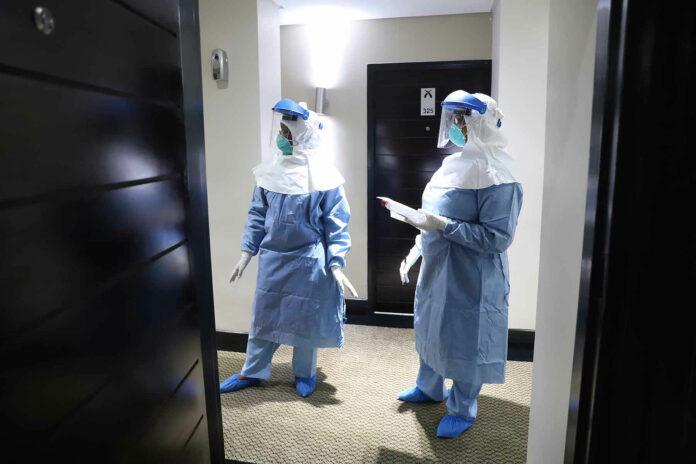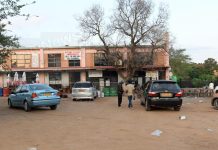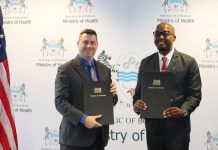Africa-Press – Botswana. Botswana’s Covid hospitalisations and deaths may be down but the country is now facing post Covid 19 crisis – the mental health of healthcare workers themselves.
With Botswana’s public healthcare system bursting at the seams, the country’s public hospitals and clinics have always had a poor quality of service bad rap. The overstretched medical staff’s prolonged battle against Covid-19 has left many doctors, nurses, support staff and others on the front lines of care exhausted and overwhelmed adding to levels of burn out that were already high.
Findings that doctors, nurses and other health care workers across the country have reached crisis levels of burnout are contained in a sturdy titled; “Prevalence and predictors of depression, anxiety and stress among frontline healthcare workers at COVID-19 isolation sites in Gaborone, Botswana.”
The study found that worrying depression, anxiety and stress were detected in some participants who took part in the study. According to the study, professional health workers who could not cope with the scourge were associated with smoking, working at the largest COVID-19 isolation centre, Sir Ketumile Masire Teaching Hospital (SKMTH) and experience of stigma.
The study shows that predictors of stress were now smoking, household members with chronic heart or lung disease, losing relatives or friends to COVID-19 and working at SKMTH.
The data was collected from the six (6) COVID-19 isolation and treatment centers across Gaborone, the capital City of Botswana. In addition to SKMTH and PMH, the other isolation facilities were Block 8 clinic, Tlotlo hotel, University of Botswana Hotel and Ave Maria Conference Centre.
The study says that severe and extremely severe depression affected a number of participants adding that severe and extremely severe anxiety were reported while others had extremely severe stress.
The study shows that mild depression was present in 9.1% of males compared to 8.1% of females. Moderate depression was seen in 5.1% of males compared to 5.5% of females. Severe and extremely severe depression was seen in 2.8% of males. On the other hand, the report says, 4.4% and 3.7% of female participants had severe and extremely severe depression respectively.
“Similarly, 72.7 of males had no anxiety compared to 71.2% of female participants. There were more male participants (86.4%) with no stress than female participants (82.7%). Participants working at SKMTH had the lowest rates of depression, anxiety and stress,” the report says. The study says; “Out of the 222 participants from this facility, 200 (90.1%) had no depression, 178 (80.2%) had no anxiety and 208 (93.7%) had no stress.”
In contrast, the report says, Princess Marina Hospital (PMH) participants had high rates of depression, anxiety and stress. Of the 165 participants from PMH, 110 (66.7%) had no depression, 107 (64.8%) had no anxiety and 121 (73.3%) had no stress.
In the current study, Healthcare workers at SKMTH had lower prevalence of depression, anxiety and stress compared to other isolation facilities.
“SKMTH was the primary treatment site for COVID -19 and hence the hospital may have been well resourced and the HCWs (Healthcare Workers may have been mentally prepared to deal with the epidemic as compared to other sites,” the report says.
It says; “Indeed HCWs at SKMTH have had access to wellness sessions at the facility. They also had better access to PPE (Personal Proactive Equipment) and were provided with accommodation away from their loved ones.” Moreover, the study says, the hospital enjoyed technical and other support from the University of Botswana faculty of medicine.
The study concluded that depression, anxiety and stress are prevalent among frontline Health Care Workers based in the COVID-19 isolation and treatment sites in Botswana.
“Multiple risk factors were identified including history of smoking, working at SKMTH, experience of stigma and discrimination and having close relatives or friends who died of COVID-19, attainment of tertiary education and having household members with chronic lung disease,” it says.
The study further concluded that; “There is an urgent need to address the mental health issues associated with COVID-19 including addressing the risk factors identified in this study.” It says addressing the mental health of HCWs should be part of the COVID-19 response in every healthcare facility.
The Study however did not establish the extent to which medics’ burnout affects patient care.
For More News And Analysis About Botswana Follow Africa-Press






